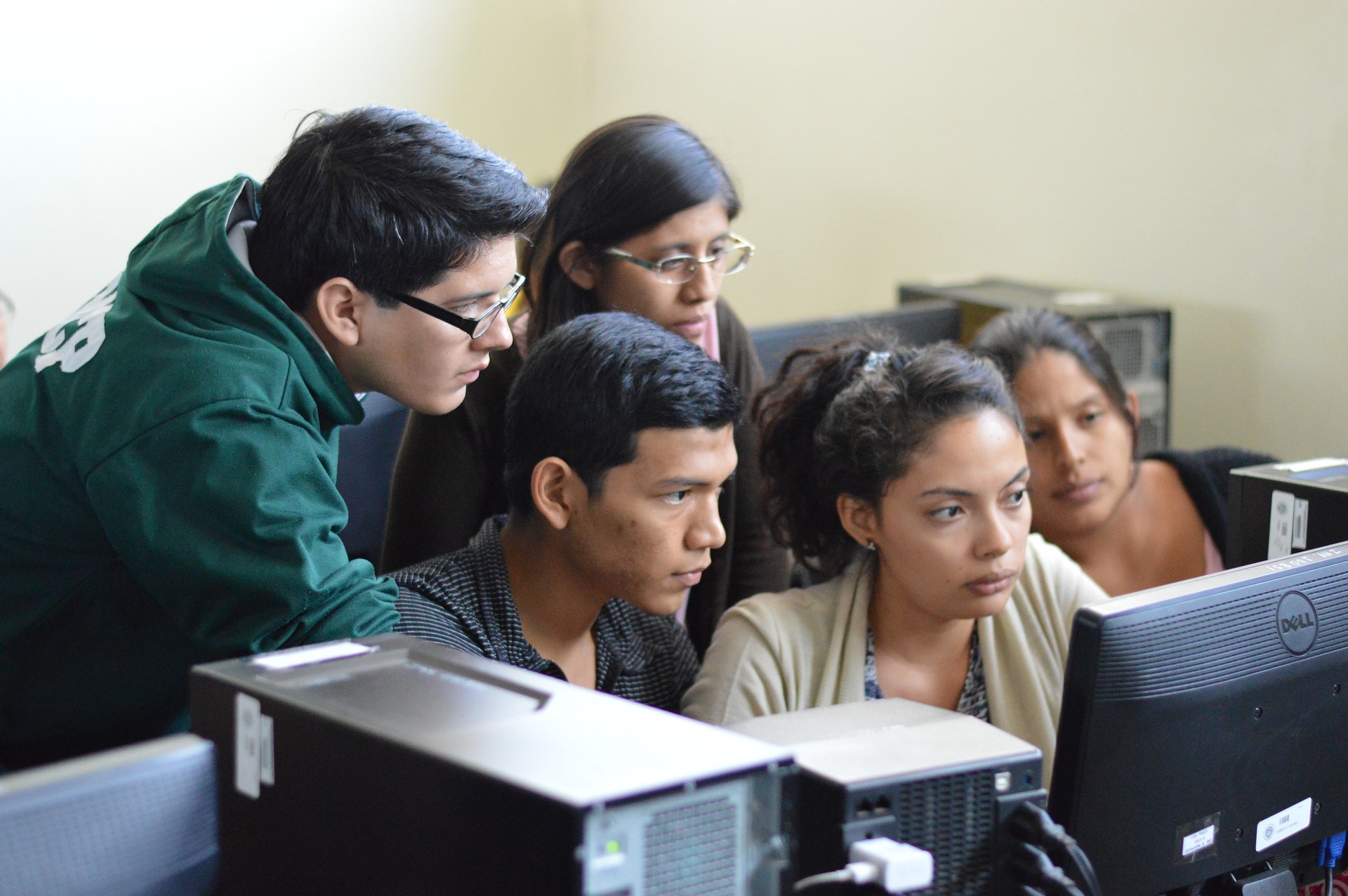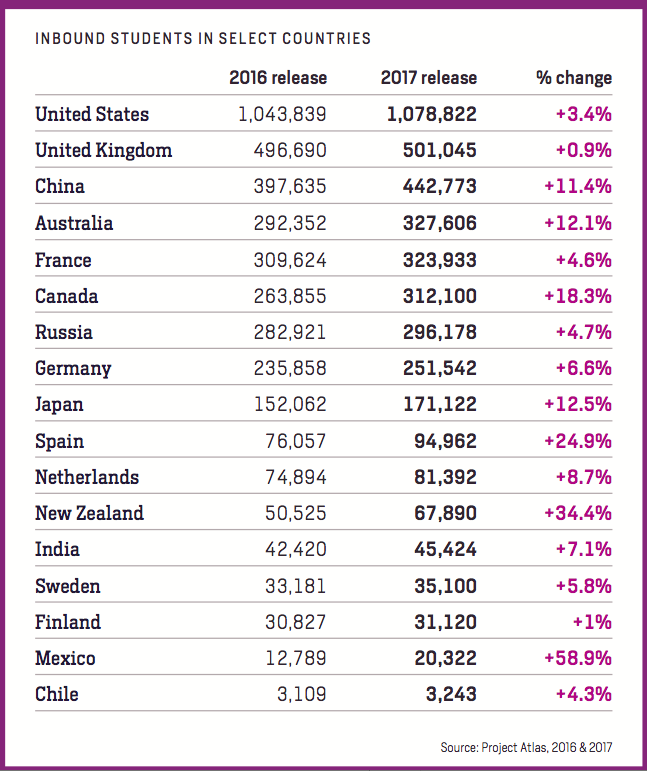Recent research conducted by The Value of Education, commissioned by the banking service company HSBC, showed 43% of Mexican parents would consider sending their children to study abroad. Although, Mexico doesn’t stand out as an attractive destination to study for a graduate degree.
The latest information published by the Institute of International Education showed Mexico has only 18,281 outbound students, and it has 20,322 international students enrolled in its 303 reporting higher education institutions. Inbound figures grew almost 60% since 2001, but that number is far away from the most attractive destinations like the U.S. or the U.K. with 1 million and half a million international students respectively.
Source: Project Atlas
HSBC survey –conducted to 8,841 parents from 15 different countries– showed that the U.S., Australia, the U.K., Canada and Germany are the top 5 destinations for parents. They are attracting a future international workforce, and their numbers are growing.
data-animation-override>
“The fact that these five nations are the most preferred is not a happy accident; all take very deliberate steps to attract more international students. Germany, for example, aims to attract 350,000 international students by 2020.”
Countries like Canada have implemented policies to make it easier for highly educated international students and skill-based immigrants a path to citizenship. Latin American countries can apply similar strategies to attract foreign talent and to acquire intercultural competencies. But different factors such as low economic growth or insecurity affect these plans.
This article from Observatory of the Institute for the Future of Education may be shared under the terms of the license CC BY-NC-SA 4.0 
)
)



)